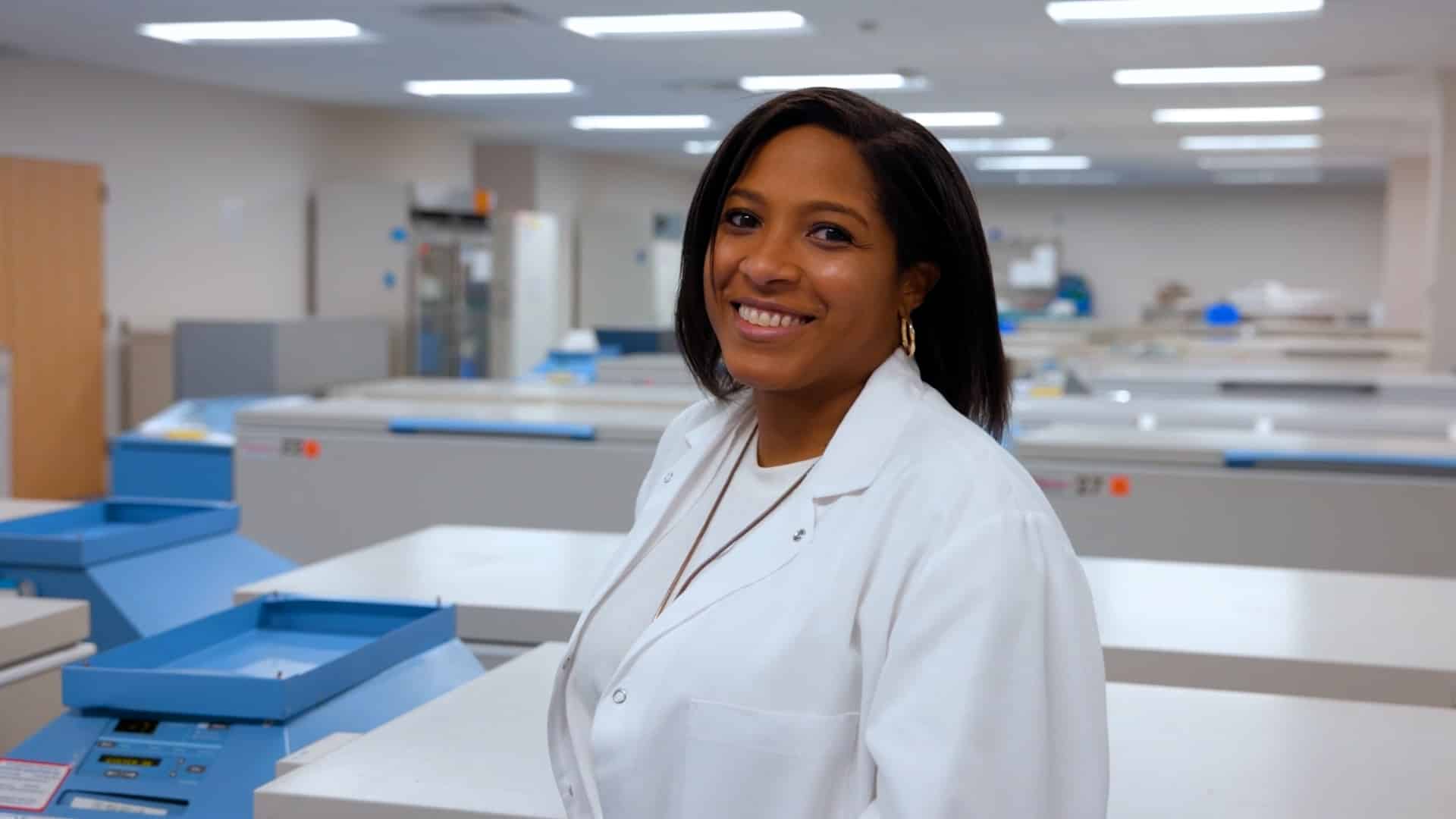Central labs act as a hub for clinical research. These specialized scientific facilities process laboratory samples from trial participants and are an integrated repository for study information.
The range of benefits central labs provide for clinical trials include experienced scientists and technicians, the latest instruments and equipment, and the routine implementation of strict protocols and quality control measures.
In this article, we’ll look closely at the role of central labs in clinical trials, the difference between them and other labs, the services they provide, and the capabilities of Cerba Research’s lab network.
Central Labs In Clinical Trials
Partnering with central labs offers clinical research coordinators a number of advantages. Aside from the key services of sample processing and data centralization, a central lab can provide invaluable support to a clinical trial; from the planning stages of a study, through to its conclusion.
During the study set-up phase, central labs will work alongside both trial investigators and sponsors to ensure that study objectives and methods align with their own standard operating procedures (SOPs). Central labs have a role in developing sample collection protocols, as well as procedures for handling, transportation, and storage.
Central labs also play a significant role in clinical trial management, offering support and advice on laboratory-related activities. Not only do they track sample collection progress with a systematic approach when receiving samples, but they also communicate with study sites, discussing any issues that emerge with investigators. The quality control provided by central labs for sample analysis and data processing offers reliability to clinical trials. For testing, central labs employ state-of-the-art equipment operated by skilled technicians, which, used with standardized protocols, can assure clinical trials of accurate results to inform findings.
The Difference Between Central And Local Labs
Central labs and local labs both have a role to play in clinical research. While a central lab receives samples collected from hospitals in various locations, a local lab is a regular laboratory in a hospital that receives samples from patients in its area.
Partnering with a central lab, a clinical trial has the advantage of uniform methods for sample processing, which can help to avoid variance in results caused by local labs using different methods and reference ranges.
A central lab also offers benefits such as the latest equipment for sample processing, advanced software for tracking data, and the capacity to process a larger number of samples than a local lab.
Central Laboratory Services
Cerba Research provides central laboratory services at end-to-end central labs across 5 continents, assigning a dedicated project manager for each clinical trial.
These include the following:
Data Quality And Accreditation
Clinical research coordinators trust Cerba Research to provide exacting quality management across all aspects of central lab services.
Lead by a quality assurance department, consistency and quality are assured by meticulous lab result monitoring and daily instrument calibrations, and evidenced by a variety of accreditations and certifications; including participation in proficiency testing schemes such as Clinical Laboratory Improvement Amendments (CLIA), the College of American Pathologists (CAP), UK NEQAS and more.
Safety Testing
Safety testing supports patient progress within clinical trials and provides investigators with data that informs decisions.
Cerba Research’s large medical laboratories enable global analyses of all safety samples with fully automated assays and high throughput, ensuring safety testing results are delivered in a timely manner. There is global standardization and correlation of all instruments thanks to regular independent proficiency testing. Harmonized SOPs, uniform methods, and correlated instruments allow all results to be confidently compared and combined in a single global database.
Key routine safety instruments used in safety testing include tools from healthcare diagnostics leaders such as Sysmex, Roche Cobas®, Beckman Coulter, and DiaSorin LIAISON®.
PMBC & BMMC
Cerba Research processes Peripheral Blood Mononuclear Cells (PBMCs) and Bone Marrow Mononuclear Cells (BMMCs) for clinical trials across a global network of pre-processing laboratories. PBMCs are a powerful research tool that can indicate drug efficacy in clinical trials. BMMCs can help to optimize cohort selection and study outcomes.
A comprehensive network of labs means Cerba Research is ideally suited to isolate, store and analyze PBMC and BMMC samples on an international scale. Processes such as PBMC isolation benefit from the harmonized SOPs, quality control, and instrumentation offered by central labs.
Protocol Development
Clinical trial protocols – documents that include objectives, methodology, and study milestones – have grown more complex. Diagnostic testing delivered by experts allows clinical trial coordinators to assess their needs and produce early insights which can serve to optimize their protocols.
The Cerba Research team of experienced scientists implement integrated laboratory and diagnostic solutions which help clinical trials to avoid potential delays due to protocol amendments and increase efficiency. Clinical trials partnering with Cerba Research benefit from access to a sizable patient database and investigator support throughout a project.
Global Laboratory Services
The wide reach of Cerba Research’s lab network gives clinical trials several advantages over partnering with multiple laboratory vendors. Not only do central labs deliver the benefits of quality assurance and standardization, but partnering with a global lab network also puts less strain on resources.
Cerba Research offers clinical trials a single contract for central lab services, augmented by project management, partner lab management, and operational onboarding.
Why Cerba Research?
Cerba Research’s central lab capacities provide harmonized sample processing, data centralization and analysis, and unmatched project support to clinical trials; optimizing protocols and improving reliability.

Do you require support for your clinical trial? Get in touch with us today.
Contact Us
